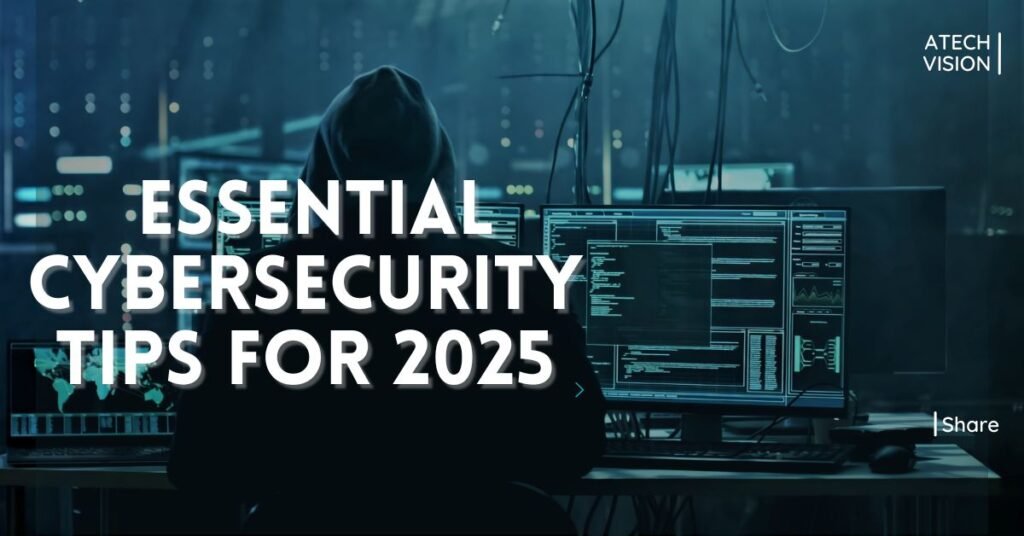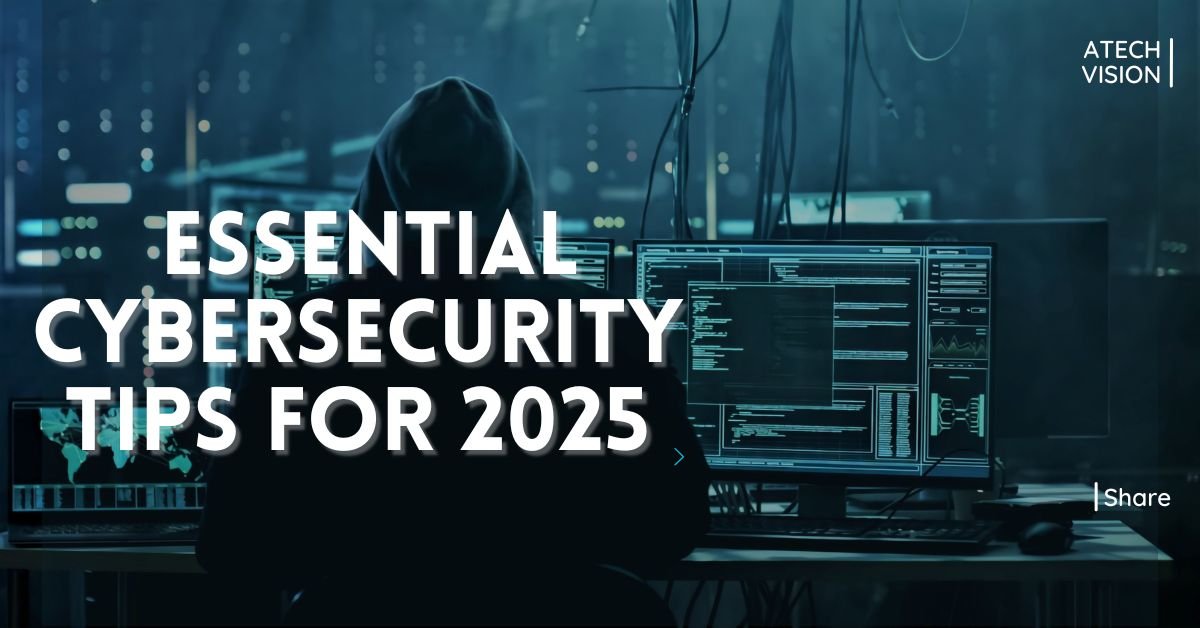
As the digital landscape evolves, so do the tactics of cybercriminals. With more people relying on the internet for work, education, and personal use, protecting your online presence has never been more critical. This guide explores practical cybersecurity measures to help you stay safe in 2025.
1. Use Strong, Unique Passwords
Why It Matters:
Weak or reused passwords are a common entry point for hackers. They exploit them to gain unauthorized access to accounts.
How to Stay Safe:
• Create Strong Passwords: Use at least 12 characters, including uppercase, lowercase, numbers, and special symbols.
• Avoid Reusing Passwords: Use a unique password for each account.
• Password Managers: Tools like LastPass, Dashlane, and 1Password can help you generate and store complex passwords securely.
2. Enable Multi-Factor Authentication (MFA)
Why It Matters:
MFA adds an extra layer of security by requiring verification beyond just a password.
How to Stay Safe:
• Enable MFA on all accounts that support it, especially email, banking, and social media.
• Use authentication apps like Google Authenticator or Authy for more secure access.
3. Be Cautious with Public Wi-Fi
Why It Matters:
Public Wi-Fi networks are often unsecured, making it easy for hackers to intercept your data.
How to Stay Safe:
• Avoid accessing sensitive information (e.g., banking) on public Wi-Fi.
• Use a Virtual Private Network (VPN) like NordVPN or ExpressVPN to encrypt your connection.
• Disable automatic connections to open Wi-Fi networks.
4. Keep Software Updated
Why It Matters:
Outdated software may have vulnerabilities that cybercriminals can exploit.
How to Stay Safe:
• Regularly update your operating system, browser, and apps.
• Enable automatic updates when possible.
• Install trusted antivirus software to detect and remove malware.
5. Recognize Phishing Scams
Why It Matters:
Phishing emails and messages trick users into providing sensitive information or installing malicious software.
How to Stay Safe:
• Inspect Emails Carefully: Look for misspellings, unrecognized senders, and suspicious links.
• Verify Links: Hover over links to check their authenticity before clicking.
• Report Phishing Attempts: Notify your email provider or IT department.
6. Protect Your Personal Information
Why It Matters:
Sharing too much online can make you a target for scams and identity theft.
How to Stay Safe:
• Adjust privacy settings on social media to limit who can see your posts.
• Avoid sharing sensitive information like your address, phone number, or financial details online.
• Use pseudonyms or generic usernames when possible.
7. Back Up Your Data Regularly
Why It Matters:
Backups protect your data in case of cyberattacks, hardware failures, or accidental deletion.
How to Stay Safe:
• Use cloud services like Google Drive or OneDrive for automatic backups.
• Keep offline backups on external drives for additional security.
• Test your backups periodically to ensure they’re functional.
8. Secure Your Smart Devices
Why It Matters:
The Internet of Things (IoT) connects everything from smart TVs to security cameras, but it also opens new vulnerabilities.
How to Stay Safe:
• Change default passwords on all IoT devices.
• Update firmware regularly to fix security gaps.
• Segment IoT devices on a separate network if possible.
9. Be Wary of Apps and Software Downloads
Why It Matters:
Malicious apps and fake software can infect your devices with malware or steal sensitive data.
How to Stay Safe:
• Download apps only from official stores like Google Play or the Apple App Store.
• Read reviews and permissions before installing.
• Use antivirus software to scan downloads for threats.
10. Stay Educated and Informed
Why It Matters:
Cybersecurity threats evolve, and staying informed helps you adapt to new challenges.
How to Stay Safe:
• Follow trusted cybersecurity blogs like Krebs on Security or SecurityWeek.
• Take online courses on platforms like Coursera or edX to learn about cybersecurity fundamentals.
• Participate in webinars or workshops to stay updated on best practices.
Conclusion
In 2025, cybersecurity is not optional—it’s a necessity. By adopting these essential tips and staying vigilant, you can protect your personal and professional life from cyber threats. Remember, staying safe online is an ongoing process, not a one-time task.




